There are over 1,000 names on Revolut’s cap table but one is particularly intriguing — especially given the recent cooling of governmental relations between Europe and China.
Angelica Anton, listed on Companies House as a director of Chinese-government-backed VC firm Silk Ventures, owns a 0.05% stake in the London fintech. That would be worth £13m on paper at its last valuation, according to Beauhurst.
Silk Ventures takes its name from the Silk Road, a network of ancient trade routes connecting China with the Mediterranean and Europe. It launched in 2017 with a $500m fund to great fanfare, securing coverage in outlets like TechCrunch and VentureBeat.
The fund’s aim, it said on its LinkedIn, is to build “the new Silk Road to the world’s most exciting market — China” — and Xi Jinping’s government funnelled $250m into it. Anton, a Romanian-born investor who reportedly speaks six languages (including a little Mandarin), appears to have extensive links to China. She’s previously been snapped meeting politicians, including Xi himself.
But, six years on from the launch, Silk Ventures has since gone curiously silent and severed direct ties with the Chinese government. There is no proof it’s done any recent investments. Sifted reached out to Anton through two different email addresses and LinkedIn, as well as via Silk’s email address and phone number, but did not receive a reply.
The firm’s retreat into obscurity comes amid greater tensions between China and Europe. Chinese investment in the region has fallen dramatically from a mid-2010s heyday, in part due to policy changes in both Europe and China. The Communist Party of China’s development strategy has shifted from infrastructure to future-oriented sectors, namely tech.
When Sifted reached out to people about the fund, many were hesitant to give information, highlighting how a once bright promise of a closer relationship between European tech and China has faded.
Backing from Beijing
Silk was announced in May 2017 at China’s One Belt, One Road (OBOR) event in Beijing. The two-day forum celebrated Xi’s ‘Belt and Road Initiative’, an ambitious development campaign aimed at boosting Chinese trade links across Asia and beyond.
Leaders including Russia’s Vladimir Putin and Myanmar’s Aung San Suu Kyi attended the conference. There, Silk announced a $500m fund. According to reporting at the time, half of the money came from the Assets Supervision and Administration Commission of the State Council (SASAC) — a Beijing-headquartered investment vehicle owned by the Chinese government. The other 50% came from a group of “confidential strategic corporations.”
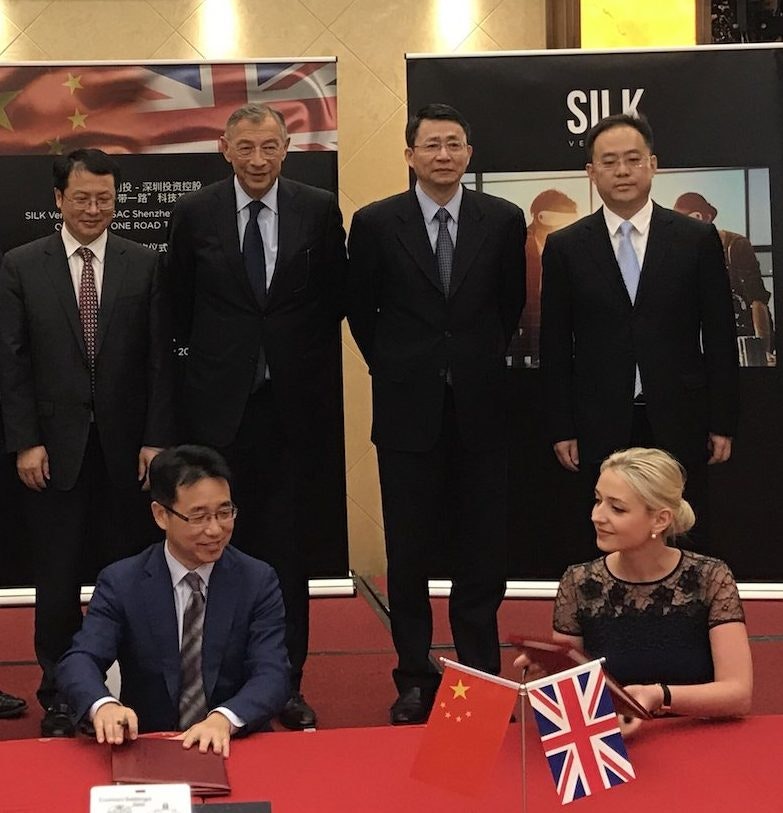
On Silk’s website, it said it started work with the SASAC in 2017, “identifying startups that could benefit from partnering with the 97 state-owned corporations under its supervision.”
The backing from the SASAC enabled the firm to become the first European VC to be approved by Chinese regulators, Silk says on its website. A photo on the website shows Anton signing a deal with officials from the SASAC, with Chinese and British flags on the table in front of them.
Silk is not the only European VC fund with a Chinese limited partnership (LP): London-based Firstminute Capital, for example, counts Chinese conglomerate Tencent as one of its LPs.
Anton meets Xi
It’s not quite clear how Anton managed to get Beijing to ink a multi-million dollar deal. She does have an impressive CV — according to her LinkedIn, she studied China Studies at Oxford before attending Harvard Kennedy School. She’s also described as an advisor to VC firm Antler.
Between 2012 and 2015, Anton worked as an investment advisor for the Chinese government, according to her LinkedIn.
She’s clearly well-connected with the Chinese political class. On Silk’s website, she’s pictured meeting Chinese President Xi Jinping at a conference where she spoke on the Belt and Road Initiative, alongside the former leaders of Greece and Pakistan — one of a few female faces in a sea of black and navy suits.
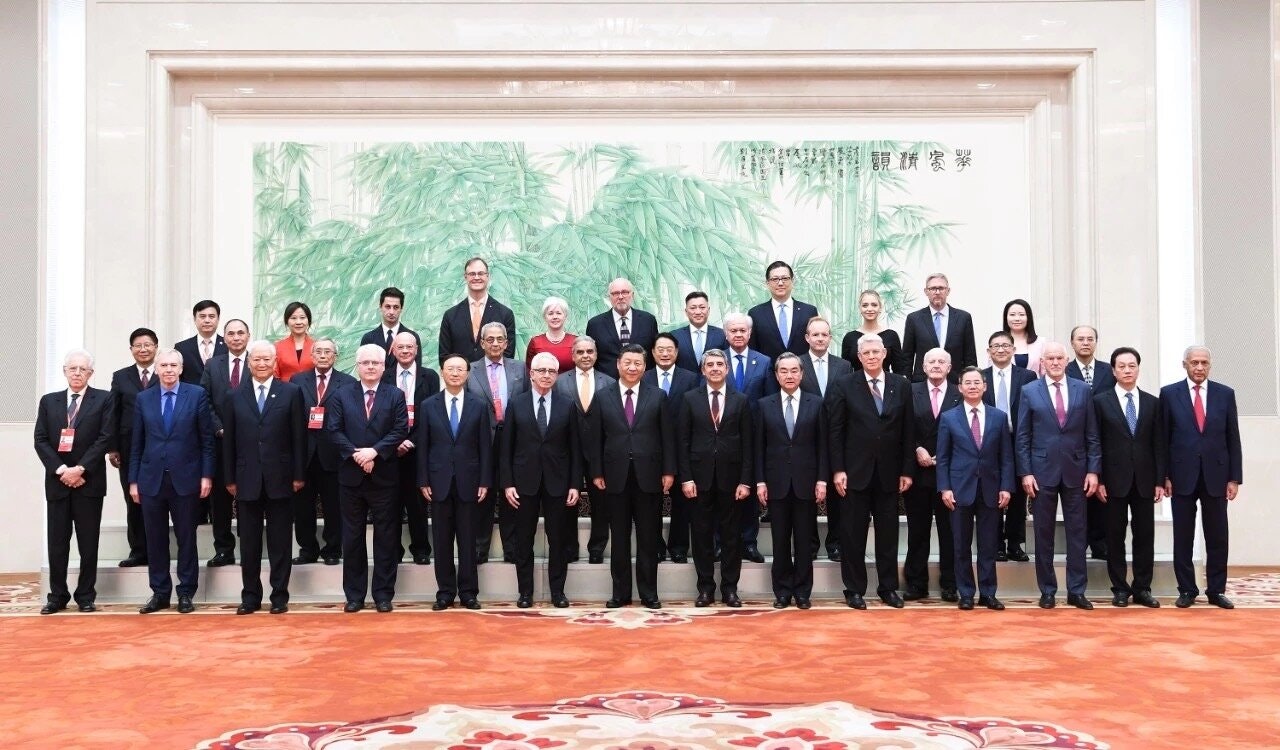
In another photo, Anton is pictured welcoming Hu Chunhua, China’s then vice premier, to the Silk offices in London. Silk’s London office was at Level39, a much-hyped coworking space opened by then mayor Boris Jonhson in 2013, during a period of excitement about the UK’s burgeoning tech scene.
Hu visited the London office, accompanied by a delegation of 40 government officials as well as Liu Xiaoming, the then Chinese ambassador to the UK. Silk, it was reported, also had offices in Menlo Park, Beijing and Shenzen.
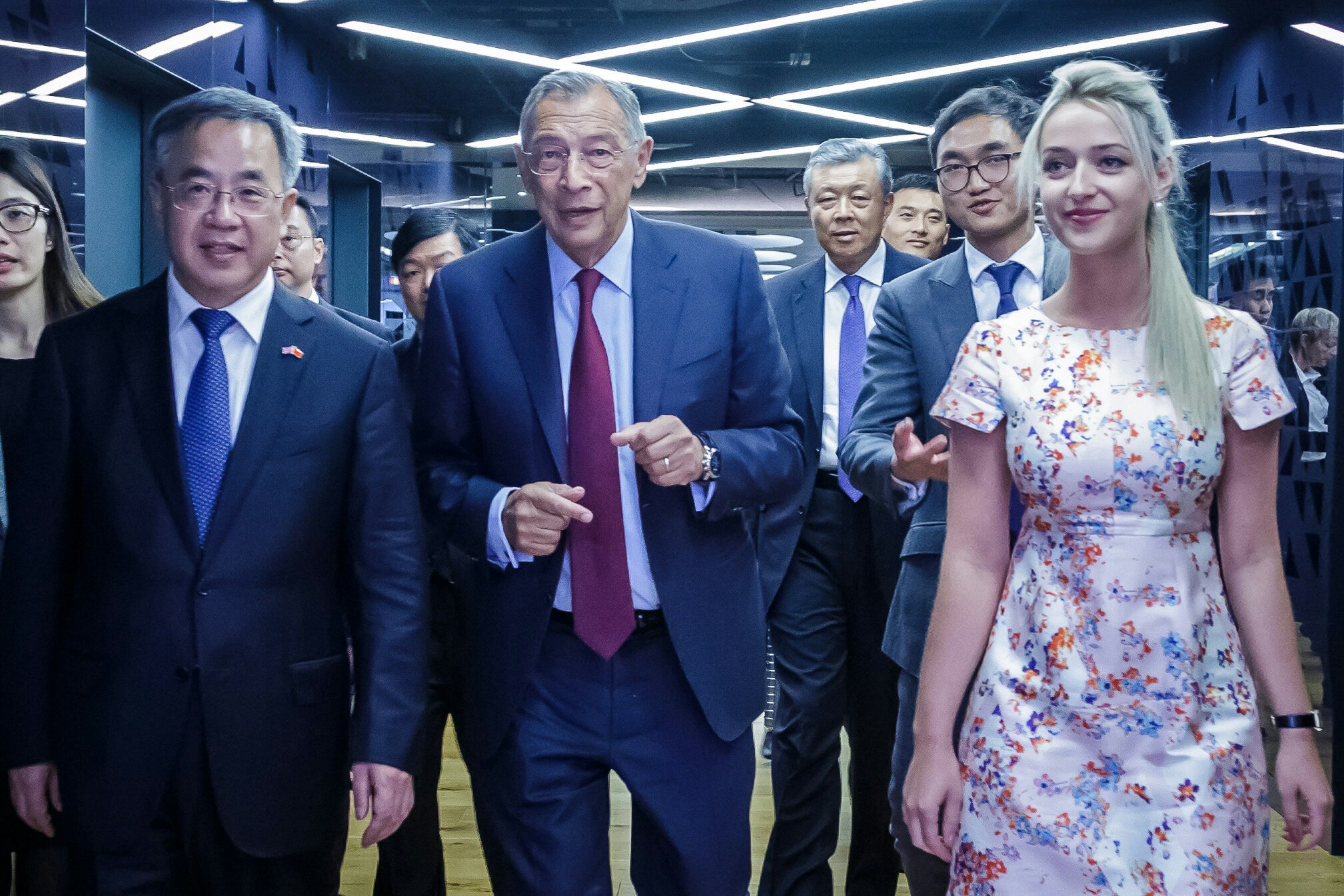
Anton’s political links extended to the British government, too.
Silk’s website shows her signing a deal with the Zhongguancun Development Group, a tech investment hub backed by the Chinese government. In the back of the photo, UK MP Liam Fox, the country’s secretary of state for international trade at the time, is pictured smiling as Anton and a Zhongguancun representative shake hands.
Asked about his relationship to Silk, Fox told Sifted he was simply witnessing the agreement on behalf of the government in his role as trade secretary.
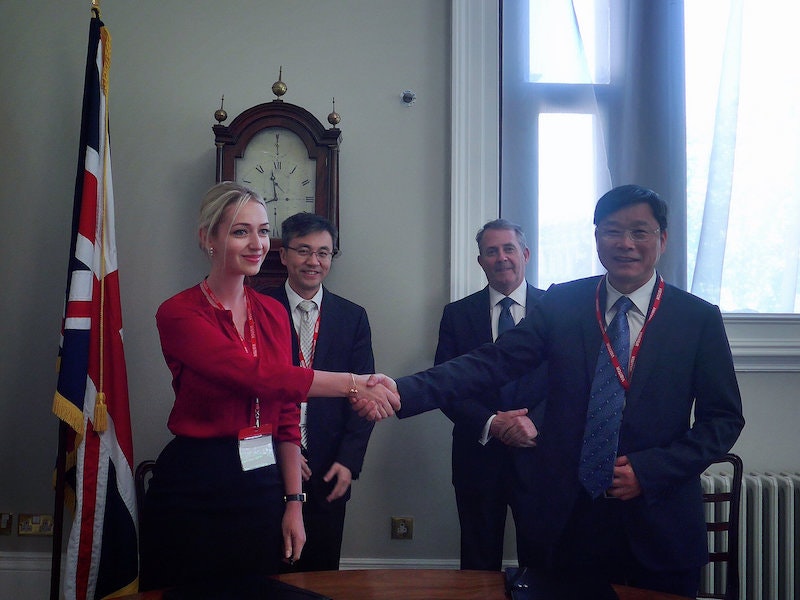
Silk’s investments
So, armed with $500m and the approval of Xi, what did Silk actually invest in?
The fund had a particular focus on fintech. On Silk’s website, there’s a quote from Alan Chang, Revolut’s former VP of operations and right-hand man of founder Nik Storonsky. “We are thankful to Silk Ventures and all of their Chinese partners who helped us tackle the market,” Chang is quoted as saying.
Silk’s website says it “identified Revolut in 2016 as an important disruptor in the financial services space, and invited it to participate in our accelerator programme in China.” It’s important — and curious — to note that Anton appears on Revolut’s cap table under her own name, rather than as Silk Ventures.
In 2021, Revolut was reported to be beginning its expansion into China but, as of the start of 2024, is not active in the country. Asked about its connection to Silk, Revolut told Sifted it does not comment on individual investors.
Other founders quoted on Silk’s website include the founder of Remitsy, a payments platform focused on cross-border payments to China, which was acquired by US fintech Wyre in 2017. The website also says Silk invested in Zamna, a startup which verifies flight passengers’ identities for airlines and governments. Neither company responded to a request to comment.
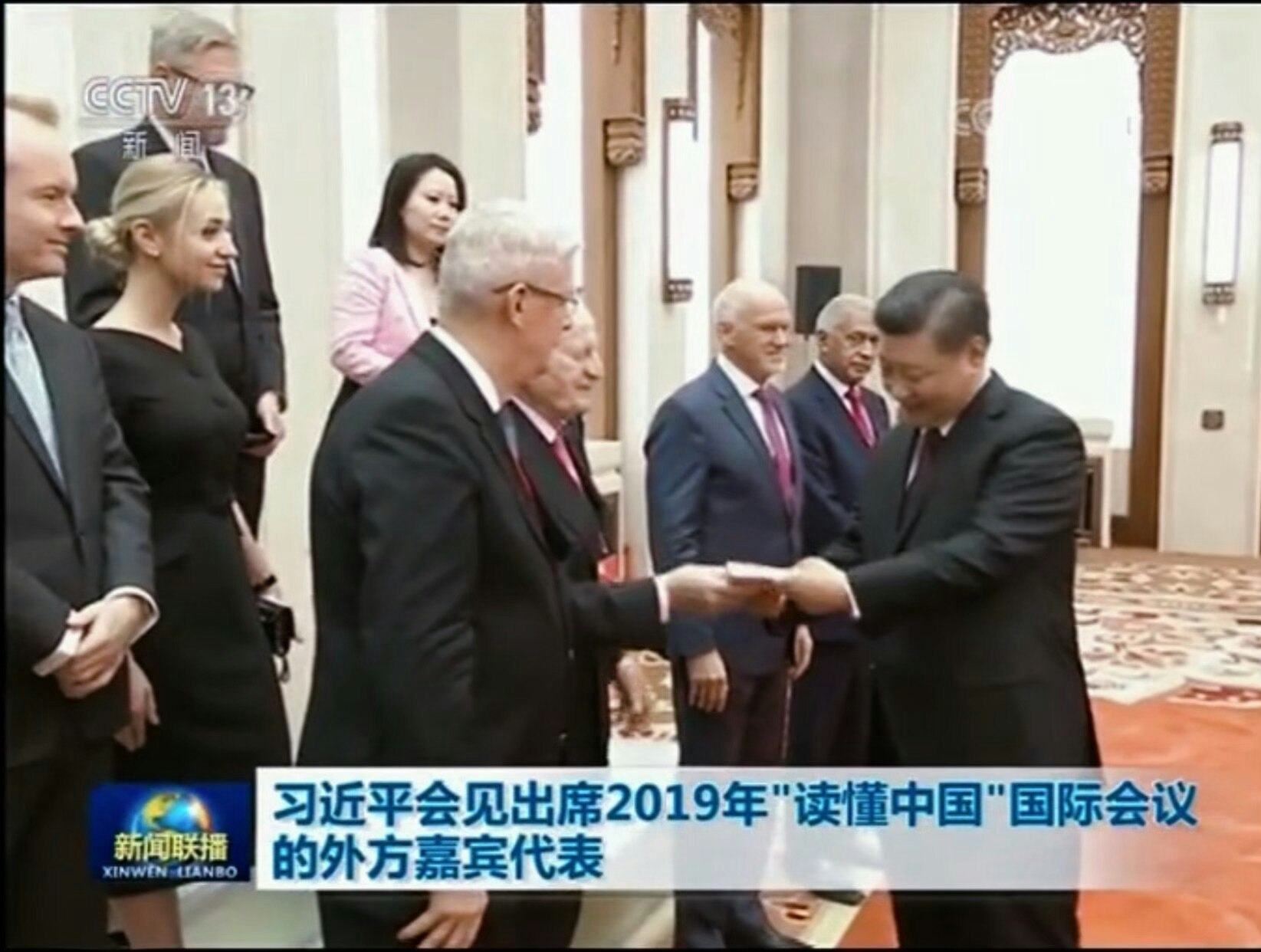
On Anton’s LinkedIn she also describes herself as an investor in Huma, a UK healthtech company, and Elvie, a British breast milk pump startup, among others. Silk Ventures is listed on Huma’s cap table, with a 0.03% stake, according to Beauhurst, as of November 2023. Sifted was not able to find Silk on Elvie’s cap table.
Anton also lists Fuse Energy as an investment on her LinkedIn — a renewable energy startup founded in 2022 by former Revolut VP Alan Chang. Chang told Sifted that Anton invested in the company in a personal capacity, and Sifted did not receive a reply from Elvie or Huma.
End of the road for Silk?
The last post on Silk Ventures’ website is from 2020 — and announces the end of its financial relationship with China’s SASAC.
“We will continue this strategic partnership, even though our investments will be independent,” it says. The post laments the end of the “so-called ‘Golden Era’ of China-UK relations” and warns a “new Cold War with the West seems to be heating up.”
Despite announcing an end to the partnership, Silk’s last post still advocates the need for collaboration with China. “A globalised economy so bifurcated that Europe does not touch China is so expensive that it is unattainable,” it says.
It’s unclear how much of the $250m Silk secured from the SASAC was deployed into companies — and what the relationship between the SASAC and the companies now is.
It’s also not clear what form Silk now takes after the end of its partnership with the Chinese government. Silk’s address is still listed online at the coworking space in London’s Canary Wharf; but when Sifted rang the offices, a receptionist said Silk was no longer present.


